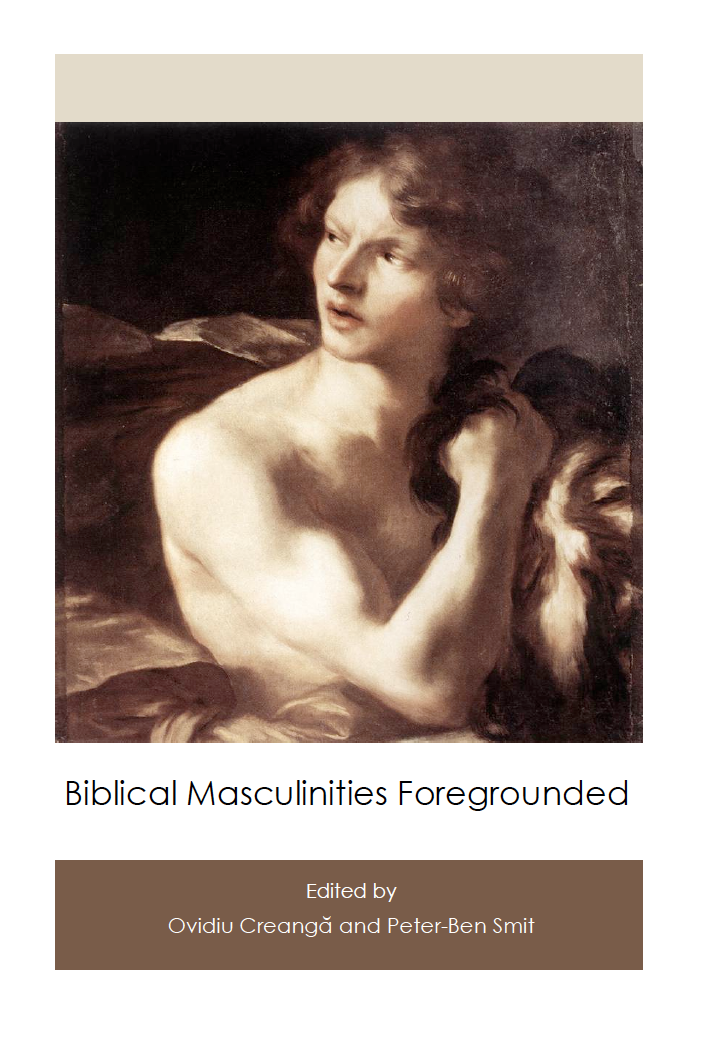Biblical Masculinities Foregrounded
Published: Oct 2017
Price range: £25.00 through £65.00
Biblical Masculinities Foregrounded brings together ten innovative studies on varieties of masculinity evidenced in the Hebrew Bible, the New Testament and other early Christian writings. A sequel to the 2010 collection, Men and Masculinity in the Hebrew Bible and Beyond, this new volume raises important questions about why the study of biblical masculinities matters, what it contributes to our knowledge of the ancient writers' world as well as to our contemporary world, and which methods adequately attend to that study. The volume is designed as a resource for scholars of both Testaments working from a variety of biblical traditions and ideological perspectives on masculinity.
The following studies are offered as companions in the conversation: Yahweh's masculinity in appearances in glory in Exodus and Ezekiel (Alan Hooker); Proverbs' (de)construction of masculinity (Hilary Lipka); Saul's troubled masculinity in 1 —2 Samuel (Marcel M€Äcelaru); weeping men in the Torah and the Deuteronomistic history (Milena Kirova); Athaliah's manly rule (Stuart Macwilliam); Joseph of Nazareth as an everyday man (Justin Glessner); being a male disciple in Matthew's 'antitheses' (Hans-Ulrich Weidemann); eunuch masculinity in Matthew's Gospel (Susanna Asikainen); masculinity and circumcision in the first century (Karin Neutel and Matthew Anderson); and Thecla's masculinity in the Acts of Thecla (Peter-Ben Smit). Ovidiu Creangă opens the volume with a critical appraisal of the current state of play in the field, while Martti Nissinen and Bjorn Krondorfer offer closing critical reflections that situate the book's topics within broader debates regarding masculinities in religious studies.
Biblical Masculinities Foregrounded
Price range: £25.00 through £65.00
Biblical Masculinities Foregrounded brings together ten innovative studies on varieties of masculinity evidenced in the Hebrew Bible, the New Testament and other early Christian writings. A sequel to the 2010 collection, Men and Masculinity in the Hebrew Bible and Beyond, this new volume raises important questions about why the study of biblical masculinities matters, what it contributes to our knowledge of the ancient writers' world as well as to our contemporary world, and which methods adequately attend to that study. The volume is designed as a resource for scholars of both Testaments working from a variety of biblical traditions and ideological perspectives on masculinity.
The following studies are offered as companions in the conversation: Yahweh's masculinity in appearances in glory in Exodus and Ezekiel (Alan Hooker); Proverbs' (de)construction of masculinity (Hilary Lipka); Saul's troubled masculinity in 1 —2 Samuel (Marcel M€Äcelaru); weeping men in the Torah and the Deuteronomistic history (Milena Kirova); Athaliah's manly rule (Stuart Macwilliam); Joseph of Nazareth as an everyday man (Justin Glessner); being a male disciple in Matthew's 'antitheses' (Hans-Ulrich Weidemann); eunuch masculinity in Matthew's Gospel (Susanna Asikainen); masculinity and circumcision in the first century (Karin Neutel and Matthew Anderson); and Thecla's masculinity in the Acts of Thecla (Peter-Ben Smit). Ovidiu Creangă opens the volume with a critical appraisal of the current state of play in the field, while Martti Nissinen and Bjorn Krondorfer offer closing critical reflections that situate the book's topics within broader debates regarding masculinities in religious studies.

